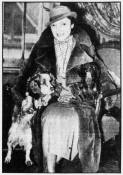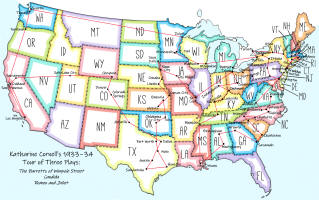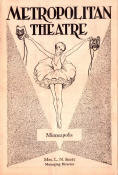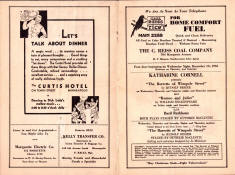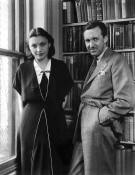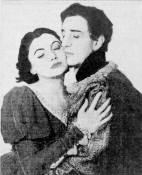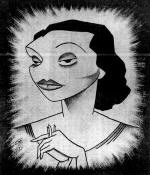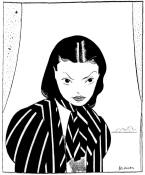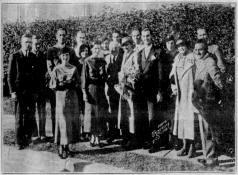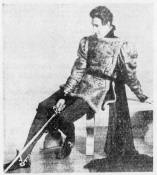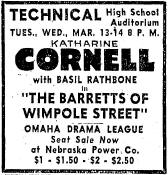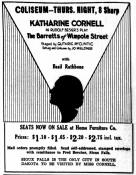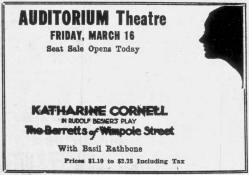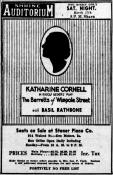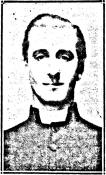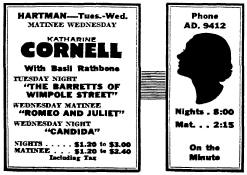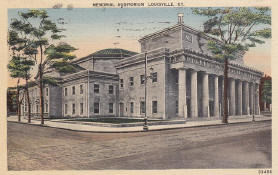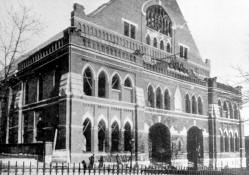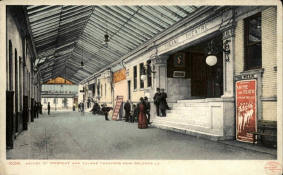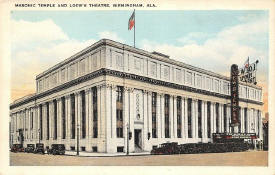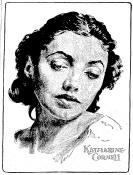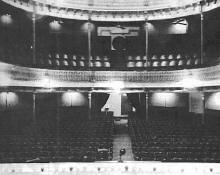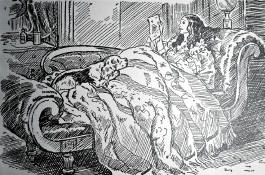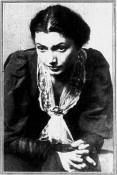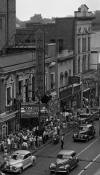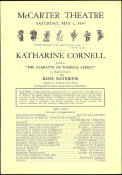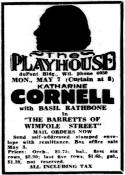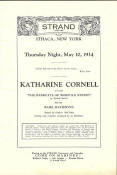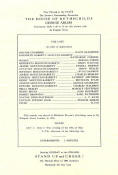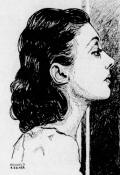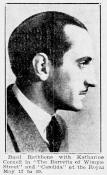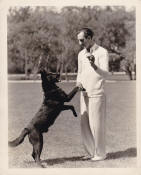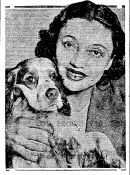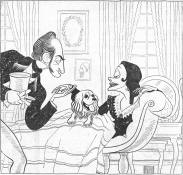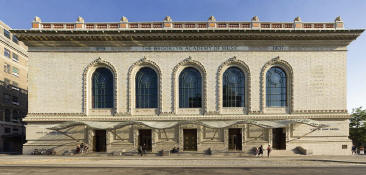Katharine Cornell's 1933–34
|
|||||||||||||||||||||||||||||||||||||||||||||||||||||||||||||||||||||||||||||||||||||||||||||||||||||||||||||||||||||||||||||||||||||||||||||||||||||||||||||||||||||||||||||||||||||||||||||||||||||||||||||||||||||||||||||||||||||||||||||||||||||||||||||||||||||||||||||||||||||||||||||||||||||||||||||||||||||||||||||||||||||||||||||||||||||||||||||||||||||||||||||||||||||||||||||||||||||||||||||||||||||||||||||||||||||||||||||||||||||||||||||||||||||||||||||||||||||||||||||||||||||||||||||||||||||||||||||||||||||||||||||||||||||||||||||||||||||||||||||||||||||||||||||||||||||||||||||||||||||||||||||||||||||||||||||||||||||||||||||||||||||||||||||||||||||||||||||||||||||||||||||||||||||||||||||||||||||||||||||||||||||||||||||||||||||||||||||||||||||||||||||||||||||||||||||||||||||||||||||||||||||||||||||||||||||||||||||||||||||||||||||||||||||||||||||||||||||||||||||||||||||||||||||||||||||||||||||||||||||||||||||||||||||||||||||||||||||||||||||||||||||||||||||||||||||||||||||||||||||||
|
On November 29, 1933, Katharine Cornell launched an ambitious tour across the United States. Believing that the road is as important to the theater as is Broadway, Cornell undertook the tour to prove her faith in the spoken drama. She asserted that the theater must be national to be vital. And yet she knew that across the county a generation was growing up without ever having seen a play performed by living actors. (source: the Dayton Daily News, April 13, 1934) The tour lasted 29 weeks (about seven months) and covered 16,853 miles. The company appeared in 32 different states, played to 500,000 people, and grossed about $650,000. There were a total of 255 performances: 144 performances of The Barretts of Wimpole Street, 42 performances of Candida, and 39 performances of Romeo and Juliet. Though she covered a very large amount of territory in her present tour she would have traveled even more except for the fact that certain states were closed to live theater. In the early part of the twentieth century (before the First World War), there were several hundred legitimate theaters open and more than 200 companies on tour every season. By 1934 many of those theaters had closed or been converted to motion picture houses. The theaters in which Katharine Cornell's company played varied from civic auditoriums, arenas, and large movie theaters to legitimate playhouses. One performance took place in a mosque. Many movie theaters were reluctant to shelve a film in favor of a stage performance. With one exception, the company traveled by train from one city to another. They traveled in two private Pullman cars, and the scenery required a large baggage car. When Cornell and company departed from Cincinnati, they traveled to Louisville via steamboat. Box office records were set in most cities and towns, which proved that there was still a desire on the part of the public to see great actors in a stage play. Cornell declared, "The thing that has pleased me most about this tour is that in every play it has not been a one, two, or three man job. Every single person in my company is the best I can get! What I strive for is a symphony of good acting." (source: the Nashville Banner, April 11, 1934) In an interview at the beginning of the tour, Katharine Cornell said, "My theory is that people prefer the living theater, actual contact with flesh and blood actors over the footlights, to any mechanical entertainment, no matter how perfect. All they need is the opportunity to view stage plays at prices they can afford to pay. This tour will determine if I am right or wrong." (The Buffalo News, November 27, 1933) |
Katharine Cornell and her dogs Flush (cocker spaniel) and Sonia (a.k.a. "Miss Mouse," dachshund)
|
The 39-member Cornell company included the following actors (in alphabetical order). Also listed are the roles they played in each of the three plays.
| Actor | Role in The Barretts of Wimpole Street | Role in Candida | Role in Romeo and Juliet |
| Paul Arthur | An Old Man of the Capulet family | ||
| Boyn Baroder | Officer | ||
| Arthur Bliss | An Old Man of the Capulet family | ||
| Charles Brokaw | Alfred Moulton-Barrett | Benvolio | |
| Robert Champlain | Sampson, a servant to Capulet / Officer | ||
| Arthur Chatterton | Doctor Chambers | Capulet / An Old Man of the Capulet family | |
| Katharine Cornell | Elizabeth Barrett Moulton-Barrett | Candida | Juliet |
| Elizabeth Dana | Bella Hedley | ||
| Julian Edwards | Watchman | ||
| Reynolds Evans | Henry Moulton-Barrett | Escalus | |
| Brenda Forbes | Wilson | Miss Prosperine Garnett | Lady Montague |
| David Glassford | Doctor Chambers | Capulet | |
| John Hoysradt | Henry Bevan | Alexander Mill | Apothecary |
| Harriet Ingersoll | Arabel Moulton-Barrett | ||
| Alice John | Juliet's Nurse | ||
| A. P. Kaye | Doctor Ford-Waterlow | Mr. Burgess | Montague |
| George Macready | George Moulton-Barrett | Paris | |
| Merle Maddern | Lady Capulet | ||
| Lathrop Mitchell | Charles Moulton-Barrett | ||
| Francis Moran | Captain Surtees Cook | Tybalt | |
| Irving Morrow | Septimus Moulton-Barrett | Balthasar | |
| Basil Rathbone | Robert Browning | James Mavor Morell | Romeo |
| R. Birrell Rawls | Gregory, a servant to Capulet | ||
| Pamela Simpson | Arabel Moulton-Barrett | ||
| Margot Stevenson | Bella Hedley | ||
| William Tannen | Sampson, a servant to Capulet | ||
| Charles Waldron | Edward Moulton-Barrett | Friar Laurence | |
| Helen Walpole | Henrietta Moulton-Barrett | ||
| Orson Welles | Octavius Moulton-Barrett | Eugene Marchbanks | Mercutio |
![]()
The three plays contrast sharply in mood, manner, and period, but are related by the romantic thread that runs through all of them. Details about each play can be found on these pages:
The Barretts of Wimpole Street
Basil Rathbone was seen in the leading male role of each play. He had traveled to Garmisch, Germany, to meet with Katharine Cornell and her husband Guthrie McClintic in the autumn of 1933.* Rathbone spent ten days with them, rehearsing the above three plays, and then sailed for New York on the Europa on October 27.
You can trace the company's travels throughout the USA and Canada on this map, which will open in a new tab:
The Tour began in Buffalo, New York, on November 29, 1933.
At the beginning of the tour, Rathbone developed a throat infection that persisted for several months. Yet he never missed a performance! Rathbone gave credit to his wife Ouida for taking care of his needs, especially providing honey to soothe his throat. When the tour ended (June 1934), Rathbone had his tonsils removed.
Buffalo, New York, at the Erlanger Theatre
| Date | Evening Performance | Matinee Performance | ||
| Wednesday | Nov. 29 | Romeo and Juliet | ||
| Thursday | Nov. 30 | Romeo and Juliet | ||
| Friday | December 1 | Romeo and Juliet | ||
| Saturday | December 2 | The Barretts of Wimpole Street | Romeo and Juliet |
As Juliet, Katharine Cornell made her Shakespearean debut in Buffalo. This event held such national interest that critics and playgoers from New York, Boston, Philadelphia, and other cities in the northeast went to Buffalo to see her first performance of Romeo and Juliet.
On December 3, the company traveled to Milwaukee Wisconsin.
Milwaukee, Wisconsin, at the Davidson Theatre
| Date | Evening Performance | Matinee Performance | ||
| Monday | December 4 | The Barretts of Wimpole Street | ||
| Tuesday | December 5 | The Barretts of Wimpole Street | ||
| Wednesday | December 6 | The Barretts of Wimpole Street | The Barretts of Wimpole Street | |
| Thursday | December 7 | The Barretts of Wimpole Street | ||
| Friday | December 8 | Romeo and Juliet | ||
| Saturday | December 9 | Romeo and Juliet | Romeo and Juliet |
Charles Collins of the Chicago Tribune (December 11, 1933) went to Milwaukee to see Romeo and Juliet. He wrote, "Miss Cornell is not an ardent Juliet, and the moonlight that falls upon the famous balcony scene does not seem to cast a spell of amorous infatuation and romantic ecstasy. She misses this mood of enchantment, which is the very heart of the role—partly, perhaps, because she is still trying her wings in the medium of blank verse, and partly, no doubt, because she is paired with a cold although handsome Romeo in Basil Rathbone. In the so-called potion scene, however, where Juliet hysterically imagines herself waking in the family charnel house, Miss Cornell is profoundly thrilling. ... The cast is brilliant, and many of the secondary characters are acted with consummate skill. This is particularly true of Orson Welles' Mercutio, which is an astonishing achievement for a youth in his first season on the stage."
Madison, Wisconsin, Parkway Theatre
| Date | Evening Performance | Matinee Performance | ||
| Monday | December 11 | The Barretts of Wimpole Street | ||
| Tuesday | December 12 | The Barretts of Wimpole Street |
In Madison, Cornell had planned to perform Romeo and Juliet on Tuesday night, but the demand for tickets to Barretts was so great that they dropped Romeo and performed Barretts both nights. Cornell and company played to a full house both nights. The demand was so great that a third night could have been given if the company's schedule had permitted.
Minneapolis, Minnesota, Metropolitan Theatre
| Date | Evening Performance | Matinee Performance | ||
| Wednesday | December 13 | The Barretts of Wimpole Street | ||
| Thursday | December 14 | The Barretts of Wimpole Street | The Barretts of Wimpole Street | |
| Friday | December 15 | Romeo and Juliet | ||
| Saturday | December 16 | The Barretts of Wimpole Street | Romeo and Juliet |
|
"Basil Rathbone conveyed the ardor and impetuosity of the young Romeo and was particularly fine in the scene where he receives the news of Juliet's death. We shared the weight of his grief." Carol Brooks, The Minneapolis Star, December 16, 1933 |
St. Paul, Minnesota, Metropolitan Theatre
| Date | Evening Performance | Matinee Performance | ||
| Monday | December 18 | The Barretts of Wimpole Street | ||
| Tuesday | December 19 | The Barretts of Wimpole Street | ||
| Wednesday | December 20 | The Barretts of Wimpole Street | Romeo and Juliet |
A bat intruded on the performance in the Metropolitan Theatre in St. Paul. Katharine Cornell told a reporter, "It is a challenge to your art to make it rise above silly and unexpected interruptions. When that bat started flying in the theater Monday night, the audience at first was amused. It happened in the last scene of The Barretts, when Elizabeth puts on her ring and flies from the house to join Browning. It was a test of dramatic art, and I like such tests. I knew that I could bring the audience's whole attention back to the play if I merely made that scene as vivid, as magnetic as it should be to hold an audience's attention. It was a fight between me and the bat, and I think I won." —The Minneapolis Star, December 23, 1933
Duluth, Minnesota, Orpheum Theatre
| Date | Evening Performance | Matinee Performance | ||
| Thursday | December 21 | The Barretts of Wimpole Street | ||
| Friday | December 22 | The Barretts of Wimpole Street |
The Orpheum Theatre in Duluth was packed both nights. The company played to standing room only crowds.
The company departed Duluth on Saturday morning, December 23 on a train bound for Seattle. They had planned to arrive Christmas morning, and perform The Barretts of Wimpole Street that evening. But the weather between Duluth and Seattle was really wet. An abundance of rain caused washouts, floods and mud slides, which delayed the train; it didn't arrive in Seattle until after 11 p.m.
Cornell and company were disappointed, having assumed that the people who had come to the theater at 8:00 p.m. had long since gone home. They were surprised when the theater manager met the train, and informed Katharine Cornell that 1300 people were waiting at the theater to see the play. The people wanted to see the play that evening, and were willing to wait for the company to get set up.
Katharine Cornell was determined not to disappoint her audience, especially because Seattle was husband Guthrie McClintic's hometown. So she agree to put on the play. To help pass the time, she kept the curtains open so that the audience could watch the stage crew transform the stage into Elizabeth Barrett's mid-Victorian bed-sitting room. McClintic and the stage manager described everything the stage hands were doing. Finally, they were ready. The performance began at 1:04 a.m. and ended at 3:48 a.m.
Katharine Cornell was so touched by the loyalty and enthusiasm of the playgoers who had waited so long for her that she responded with an inspired performance.
Seattle, Washington, Metropolitan Theatre
| Date | Evening Performance | Matinee Performance | ||
| Monday | December 25 | The Barretts of Wimpole Street | ||
| Tuesday | December 26 | Romeo and Juliet | ||
| Wednesday | December 27 | The Barretts of Wimpole Street | The Barretts of Wimpole Street | |
| Thursday | December 28 | The Barretts of Wimpole Street | ||
| Friday | December 29 | The Barretts of Wimpole Street | ||
| Saturday | December 30 | Candida | Romeo and Juliet |
"To see Katharine Cornell in the guise of Elizabeth Barrett is a stimulating experience and a memorable one. Likewise in key with the facts upon which Mr. Besier based his play is the portrayal of Robert Browning, vehement in his wooing to the point of brusqueness, given by that polished and finely endowed actor, Basil Rathbone." —Everhardt Armstrong, Seattle Post-Intelligencer, December 27, 1933
1934
Tacoma, Washington, Temple Theatre
| Date | Evening Performance | Matinee Performance | ||
| Monday | January 1 | The Barretts of Wimpole Street |
Portland, Oregon, Playhouse
| Date | Evening Performance | Matinee Performance | ||
| Tuesday | January 2 | The Barretts of Wimpole Street | ||
| Wednesday | January 3 | The Barretts of Wimpole Street | ||
| Thursday | January 4 | The Barretts of Wimpole Street | The Barretts of Wimpole Street | |
| Friday | January 5 | Romeo and Juliet | ||
| Saturday | January 6 | The Barretts of Wimpole Street | Candida |
Katharine Cornell wrote that during the performance of Romeo and Juliet, she, as Juliet, was receiving advice from Lady Capulet in the Capulet home "when suddenly the whole set was struck from the back and we found ourselves in the street scene where they are watching for Mercutio. We felt as surprised, the nurse, Lady Capulet, and I—and undressed—as if we'd had our skirts thrown over our heads from the rear. Without batting an eye, however, we went on and played as though nothing had happened." (I Wanted to Be an Actress,
In an interview with Fred White of the Portland Oregonian, Basil Rathbone stated, "Of one thing I am sure. The actor who was brought up in the costume play, of which Shakespeare is the highest form, has a broader scope, a sounder technique and he last longer than the actor who has no such background. Ease and grace on the stage come from fencing and dancing and many hours of appearance in clothes that do not permit one to put his hands in his pockets or light a cigarette when in doubt what to do."
San Francisco, California, Columbia Theatre
| Date | Evening Performance | Matinee Performance | ||
| Monday | January 8 | Romeo and Juliet | ||
| Tuesday | January 9 | Romeo and Juliet | ||
| Wednesday | January 10 | Romeo and Juliet | Romeo and Juliet | |
| Thursday | January 11 | Candida | ||
| Friday | January 12 | Candida | ||
| Saturday | January 13 | Candida | Candida | |
SECOND WEEK |
||||
| Monday | January 15 |
The Barretts of Wimpole Street |
||
| Tuesday | January 16 | The Barretts of Wimpole Street | ||
| Wednesday | January 17 | The Barretts of Wimpole Street | The Barretts of Wimpole Street | |
| Thursday | January 18 | Candida | The Barretts of Wimpole Street | |
| Friday | January 19 | Romeo and Juliet | ||
| Saturday | January 20 | Candida | Romeo and Juliet | |
.
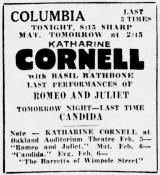 "San Francisco audiences are beautiful to play to—laughs
that are cheap, ... subtle bits you are always wishing would go over have
beautiful response." (Katharine Cornell, I Wanted to Be
an Actress, p. 135)
"San Francisco audiences are beautiful to play to—laughs
that are cheap, ... subtle bits you are always wishing would go over have
beautiful response." (Katharine Cornell, I Wanted to Be
an Actress, p. 135)
San Francisco had a line at the box office in the middle of the night before the day when tickets went on sale.
"Indicative of the widespread interest in Miss Cornell's first repertory season in San Francisco are the hundreds of orders for tickets from playgoers outside of the city. Orders have been received from such distant points as Reno, Red Bluff, Fresno, San Luis Obispo and Sacramento. The advance mail order sale is the largest the theater has had." —The San Francisco Examiner, January 5, 1934
"What is believed to be a record for a G. Bernard Shaw play in California was established by Katharine Cornell in Candida in the Columbia Theater, San Francisco, Saturday matinee, January 13, when she played to 3209, which was 118 over the capacity of the theater. With the evening's performance of Candida, the day's receipts reached $6300." —Los Angeles Daily News, January 16, 1934
The Saturday matinee performance of Romeo and Juliet broke the house record of the Columbia Theater, even eclipsing the record set by Candida the previous Saturday. "Not only was every ticket sold and extra chairs placed in the orchestra pit with the musicians banished to the foyer as they generally were during the Cornell engagement across the bay, but every inch of standing room was occupied." —The Oakland Post-Enquirer, January 24, 1934
The Barretts broke all records with 1 performance in Des Moines to which 4200 people came & which grossed $7087. San Francisco has the record for single performances of Romeo and Juliet and Candida.
"Candida acted by Katharine Cornell, Basil Rathbone and Orson Welles is a treat for the ear, eye and emotions." Wood Soanes, Oakland Tribune, January 12, 1934
In his autobiography, Basil Rathbone relates an amusing incident that occurred in San Francisco. "Outside the theater the neon lights read KATHARINE CORNELL in THREE PLAYS. When I went down to the theater on the last Saturday night there, I noticed a number of people in the street, standing and looking up at the theater and laughing. I laughed myself when I saw what had happened. The letter P in PLAYS had gone out!" (In and Out of Character, p. 123)
Los Angeles, California, Biltmore Theatre
.
Theater fans came from far and wide to see Katharine Cornell on stage. One newspaper reported that a party of Mexicans few from Mexico City to attend one of the Los Angeles performances.
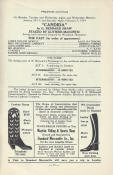 In her autobiography Katharine Cornell wrote "Los Angeles—as always very social
and exciting. I talked with Irving Thalberg and Norma again about doing The Barretts in the movies. He said, 'Now for the last time, will you do it?'
And I said, 'I can't,' and Norma said, 'Then I suppose I'll have to." (I
Wanted to Be an Actress, p. 135) In 1934 Thalberg made a film version of
The Barretts
of Wimpole Street. It starred Norma Shearer as Elizabeth Barrett and Fredric
March as Robert Browning.
In her autobiography Katharine Cornell wrote "Los Angeles—as always very social
and exciting. I talked with Irving Thalberg and Norma again about doing The Barretts in the movies. He said, 'Now for the last time, will you do it?'
And I said, 'I can't,' and Norma said, 'Then I suppose I'll have to." (I
Wanted to Be an Actress, p. 135) In 1934 Thalberg made a film version of
The Barretts
of Wimpole Street. It starred Norma Shearer as Elizabeth Barrett and Fredric
March as Robert Browning.
A car accident in Los Angeles required several changes in the minor roles. The Los Angeles Evening Citizen News (February 3, 1934) reported that the accident occurred at Santa Monica Blvd. and Highland Ave.
"When the car hurtled a curb, sheared off an ornamental light standard and traffic signal, smashed a mail box and splintered two parkway benches, the flying wood breaking a window of a nearby ice cream parlor. The players who were hurt were Harriett Ingersoll, who suffered a broken arm and deep gashes on the head and legs, Margot Stevenson, who suffered a broken nose, Francis Moran, minor bruises, and William J. Tannen, minor cuts. Tannen, the driver, was booked on suspicion of drunken driving. The car, almost a complete wreck, overturned. Mr. Tannen said that he had been forced to swerve it into the curb to avoid a crash with another car. Police estimated the speed of the car at about 40 mph."
The Los Angeles Evening Post-Record (February 3, 1934) reported the same but added that the car apparently got out of control when it struck uneven street car tracks.
The performances on the day of the accident were Romeo and Juliet (matinee) and Candida, (evening); none of the injured actors were in either play except for William Tannen, the drunk driver, and Francis Moran. Due to his arrest, Tannen, who played Sampson (a servant to Capulet) in Romeo and Juliet, was replaced by Robert Champlain. Francis Moran suffered only minor bruises, so he didn't need to be replaced in the roles of Tybalt (Romeo and Juliet) and Captain Surtees Cook (The Barretts of Wimpole Street).
Harriet Ingersoll played Arabel Moulton-Barrett in The Barretts of Wimpole Street. She was replaced by Pamela Simpson. Margot Stevenson, who played Bella Hedley in The Barretts of Wimpole Street, was replaced by Elizabeth Dana.
William Tannen was convicted of drunk driving and received two years probation.
Oakland, California, Auditorium Theater
| Date | Evening Performance | Matinee Performance | ||
| Monday | February 5 | Romeo and Juliet | ||
| Tuesday | February 6 | The Barretts of Wimpole Street | Candida |
Sacramento, California, Memorial Auditorium
| Date | Evening Performance | Matinee Performance | ||
| Wednesday | February 7 | The Barretts of Wimpole Street |
 3000 people crowded into the auditorium to watch
The Barretts of Wimpole Street. The performance in Sacramento was disrupted by several hundred late
arrivals to the theater. The curtain went up promptly at 8:15 p.m., yet
people were still coming in the front door and trying to find their seats.
3000 people crowded into the auditorium to watch
The Barretts of Wimpole Street. The performance in Sacramento was disrupted by several hundred late
arrivals to the theater. The curtain went up promptly at 8:15 p.m., yet
people were still coming in the front door and trying to find their seats.
The Sacramento Bee (February 10, 1934) reported that the ushers were showing people to the wrong seats, and some people had seated themselves in the wrong seats, and then had to be moved. The chaos continued through the first scene of the play, which naturally made it difficult for the audience to hear the actors and to enjoy the play. It was reported that Katharine Cornell "took no notice of the situation and exhibited no sign of temperament." She had insisted on starting The Barretts of Wimpole Street on schedule despite the confusion in the audience (about 2500 people).
The claim by another newspaper, The Sacramento Union, that the latecomers to the theater were from out of town offended one theatergoer, who wrote the following letter to the editor of The Sacramento Bee:
|
A number of Auburnites went down to Sacramento on February 7th to see Katharine Cornell in The Barretts of Wimpole Street. They are loud in the praises of the acting, but all say that the beauty of the great show was marred by the late arrival of many patrons. One Sacramento paper blames the late arrivals to the country people. I do not believe this is a just accusation, and I believe all the county people were there on time. The late arrivals were from Sacramento, many of them living within a stone's throw from the auditorium. They really do not go for the show, but like to show off their clothes and be noticed. There are a lot of people, however, who go to see and enjoy the performance, because they like good acting. If the manager of the auditorium would do a they do in all European theaters, and in the best theaters in the United States, there could be no criticism. When a show advertises that the curtain rises at 8:15, that should mean 8:15, and the theater doors should close as soon as the curtain goes up, and not reopen until that act is finished. —The Sacramento Bee, February 10, 1934 |
Thursday, February 8, was a travel day.
Salt Lake City, Utah, Paramount Theater
| Date | Evening Performance | Matinee Performance | ||
| Friday | February 9 | Romeo and Juliet | ||
| Saturday | February 10 | The Barretts of Wimpole Street | Candida |
"The Barretts of Wimpole Street is a triple star play; of equal
importance to Elizabeth (from the playwright point of view) are Robert Browning
and Edward Barrett, and Basil Rathbone and Charles Waldron in those roles gave
as magnificent performances as Cornell did in hers."
—Salt Lake Telegram, February 12, 1934
Cheyenne, Wyoming, Lincoln Theater
| Date | Evening Performance | Matinee Performance | ||
| Monday | February 12 | The Barretts of Wimpole Street |
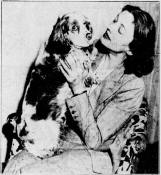 Katharine Cornell and Flush |
The theater was sold out for this performance of Barretts. |
Denver, Colorado, Municipal Auditorium
| Date | Evening Performance | Matinee Performance | ||
| Tuesday | February 13 | The Barretts of Wimpole Street | ||
| Wednesday | February 14 | Romeo and Juliet | ||
| Thursday | February 15 | Candida | The Barretts of Wimpole Street |
February 13 was Katharine Cornell's first appearance on a Denver stage.
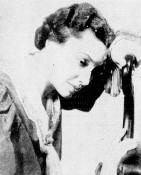
Cornell wrote: "In Denver everything was big. The Brown Palace, that grand old giant of a hotel with its balconies its ten-story court, its general air of gold-rush magnificence. The theatre, a huge auditorium where cattle shows are given. When they have a rodeo in Denver they just take out the seats. They built me a little dressing-room, like a packing case, near the stage because the real dressing-rooms were five minutes' walk away. A dressy opening—jewels, furs—almost like the Met, and a record box-office, $5,200. I had a cold and had to cough during the tomb scene. There is no agony like that one—trying to keep from coughing when you are supposed to be dead. By the time it beats you, you're practically choking to death." (I Wanted to Be an Actress, p. 136)
The Barretts of Wimpole Street packed the Auditorium for a matinee and night. The gross at the night performance, over $5,000, breaking her record anywhere on the road, up to this point. More records would be broken as the tour continued.
"Of the three plays presented here by Miss Cornell and her company this week Romeo and Juliet appeared to be the most interesting. Each had its own qualities of merit, but neither The Barretts nor Candida showed Miss Cornell to such good advantage as did the Shakespearean comedy. Oddly enough, it was the most poorly attended of the three." Fred Speers, The Denver Post, February 16, 1934
Colorado Springs, Colorado, Auditorium
| Date | Evening Performance | Matinee Performance | ||
| Friday | February 16 | The Barretts of Wimpole Street |
In his autobiography, Basil Rathbone wrote that while on the tour, his week's salary was stolen—not just once, but twice! "On the first occasion our hotel suite was entered in the dead of night and my week's salary stolen, while Ouida and I and Moritz all slept soundly! This was unquestionably an inside job. The following week Ouida was on her way to the post office—my salary was in her handbag. She stopped at the hotel newsstand and put her bag down as she turned over the pages of the latest Vogue or Vanity Fair. In a flash a hand grabbed her bag and as she turned and shouted 'Stop that man,' he was through the revolving doors and out into the street." (In and Out of Character, p. 122)
Note: It is difficult to believe that the story of the second theft is true. Anyone who is carrying something valuable in his or her bag knows better than to put the bag down, Anyone with half a brain would have gone to the post office to do what needed to be done with the money, and then browsed through the magazines upon returning to the hotel. Odd that Basil Rathbone shares this story in his autobiography when it showcases his wife's stupidity.
Amarillo, Texas, Municipal Auditorium
| Date | Evening Performance | Matinee Performance | ||
| Saturday | February 17 | The Barretts of Wimpole Street |
Katharine Cornell wrote: "The Barretts and a dust storm—the most terrific thing I have ever known. So much noise from the wind on the roof you couldn't get the cues. We pretended that nothing was happening. Simply spoke as loudly as we could; waited a little whenever we could—we felt the audience couldn't hear a word. They were wonderful about it. ... After the performance people came back on the stage in droves and thanked us. When we started to leave, we couldn't get to the curb because of the storm. The taxicabs had to back up to the door. Then they pushed us inside and drove like mad to the hotel—I never felt anything like that wind." (I Wanted to Be an Actress, p. 137-138)
Dallas, Texas, Melba Theatre
| Date | Evening Performance | Matinee Performance | ||
| Monday | February 19 | Romeo and Juliet | ||
| Tuesday | February 20 | The Barretts of Wimpole Street | Candida |
According to the Dallas News (February 20, 1934), several hundred enthusiasts braved the coldest weather of the year and waited for the train from Amarillo to arrive so that they could welcome Katharine Cornell and company. Later Miss Cornell said she was swept off her feet by the reception at the train station. "It is thrilling to bring our plays to a city which is so gracious as to give us such an unusual welcome before it even has seen us act."
Austin, Texas, Paramount Theatre
| Date | Evening Performance | Matinee Performance | ||
| Wednesday | February 21 | The Barretts of Wimpole Street |
The manager of the Paramount Theatre added 74 seats downstairs and offered standing room for 100 in the balcony to accommodate all those who wanted to see The Barretts of Wimpole Street.
| World's First Lady of Stage Halts Interview for Bite of Tortillas "The people think that they don't want to see Romeo and Juliet any longer. But if we were to play it a second time in the same town within the week, the house would treble. It shows—by the way, do you know where I could get a tortilla?" The press, which strives for omniscience, knew of a good many Mexican good emporiums but didn't grasp the connection between Shakespeare and tortillas. "Last night in Dallas, I had one of those things and it was wonderful. I'm dying for another!" And those large brown eyes sparkled at the memory. Well, why shouldn't she have a tortilla or a whole plate of enchiladas and tamales if she wanted them at midnight? After all, she had put in three steady hours at hard work preceded by a train trip; had had only a fleeting visit to Barton Springs for relaxation; had dispatched a vibrant Elizabeth to Florence in the arms of her Robert Browning and had seen a record Paramount theater audience give her a record, thrilling ovation. After that she had greeted a long line of autograph seekers—and gave the autographs—and had been interviewed after her single appearance here. And she had given that interview so charmingly and zestfully that for all the press knew it was her favorite off-stage diversion. The press, as you have guessed by the time, rose to the occasion. While Miss Cornell waited at a nearby coffee shop, the scribes made a nocturnal run and found most of the tortilla spots closed. One proprietor, in fact, was just barring his doors and refused to let us in. "All right! All right for you!" we got him told. "You're just passing up a good chance to feed a Celebrity!" He appeared pained and a little compassionate. "Maybe you should go home and get some sleep. By tomorrow you will be all right," was all he had to offer. Finally, of course, we came upon a tortilla vendor alive to his opportunities and bore the things back to America's First Lady of the Stage—no empty title when applied to Katharine Cornell. She had asked for one tortilla and then reconsidered. "Er—maybe you had better make it two." When we left the coffee shop, not one of the six we had brought was in sight. —Lorraine Barnes, Austin American-Statesman, February 22, 1934 |
Katharine Cornell wrote: "Austin—the place where we discovered that all the handsome black Packards with drivers in black livery which Ray [Henderson (press agent)] had been sending to stations along the way to meet us were funeral-parlor coaches." (I Wanted to Be an Actress, p. 139)
San Antonio, Texas, Texas Theatre
| Date | Evening Performance | Matinee Performance | ||
| Thursday | February 22 | The Barretts of Wimpole Street |
The San Antonio Evening News (February 23, 1934) reported: "The auditorium was completely sold out before 6 o'clock Thursday evening, and after that seats went into the aisles and the orchestra pit for the overflow, and before the opening curtain enthusiastic late-comers were making unheard-of bids for tickets which just weren't available. ...
"Basil Rathbone played Robert Browning so convincingly and so romantically that practically all the feminine element in the audience looked desperately serious during the love scenes and sighed audibly when they were finished."
The gross intake for the San Antonio performance was nearly $5000.
Houston, Texas, Majestic Theatre
| Date | Evening Performance | Matinee Performance | ||
| Friday | February 23 | The Barretts of Wimpole Street | ||
| Saturday | February 24 |
Candida |
Romeo and Juliet |
Katharine Cornell's dog Flush received his own curtain calls at the end of the Barretts performance in Houston.
"Basil Rathbone as leading man in all three plays proved himself suave, poised and assured." —Bess Whitehead Scott, Houston Post, February 25, 1934
Waco, Texas, Baylor Auditorium
| Date | Evening Performance | Matinee Performance | ||
| Monday | February 26 | The Barretts of Wimpole Street |
.
The Armstrong Browning Library and Museum of Baylor University has the largest Browning collection in the world. Cornell and Rathbone visited the museum, and they were allowed to borrow two pieces to wear at the performance that night. Basil wore a ring of Browning's, one that Browning had worn for 42 years. It was a 22-carat gold band set with a green bloodstone and bearing the insignia of the Browning family. Katharine wore a brooch that Browning had given to Elizabeth on their first wedding anniversary. The brooch was of three large topazes set in a large Florentine gold mounting.
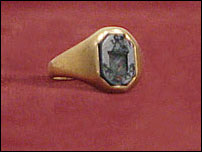 Browning's ring |
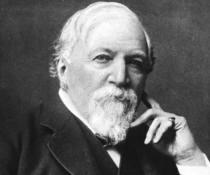 Robert Browning wearing the ring |
The profits of the performance in Waco were donated to the Browning collection.
Fort Worth, Texas, Majestic Theatre
| Date | Evening Performance | Matinee Performance | ||
| Tuesday | February 27 | The Barretts of Wimpole Street | The Barretts of Wimpole Street |
Cornell's company was originally only performing Tuesday night, but when that performance was sold out, and the public was clamoring for more tickets, the theater manager persuaded Katharine Cornell to add a matinee to the schedule.
Robert Nail, director of the Little Theater; Mrs. Edwin T. Phillips, member of the theater board, and other drama enthusiasts met Miss Cornell at the T. & P station at 9:30 a.m. Tuesday and presented her a bouquet of rosebuds and freesia. "I am thrilled when I do Juliet," Miss Cornell told her greeters. "Of course, The Barretts of Wimpole Street is a natural and audiences like it. It gives me real satisfaction to act in Shakespeare." Miss Cornell had Flush, brown and white cocker spaniel, with her. "The people of Texas," Miss Cornell said, "are so gracious and enthusiastic. It makes our tour worthwhile to find such a tremendous response to our efforts." As she left the station she said she looked forward to a day in the country so that Flush could have a place to play. (From the Fort Worth Star-Telegram, February 27, 1934)
Oklahoma City, Oklahoma, Shrine Auditorium
| Date | Evening Performance | Matinee Performance | ||
| Wednesday | February 28 | The Barretts of Wimpole Street | The Barretts of Wimpole Street |
Another city where the company added an extra performance because of the high demand for tickets. .
In Oklahoma City, Basil Rathbone's dog Moritz became a bone of contention. When the Skirvin Hotel informed Rathbone dogs were not allowed, the entire cast went to the Biltmore Hotel where the manager said, "Sure, we take dogs, cows, anything that can pay its bill." The manager of the former hotel reversed his stand but the cast did not. The Oklahoma News (March 4, 1934) commented, "We agree with the Biltmore that hotels have had much more annoying tenants than those of the canine variety."
Tulsa, Oklahoma, Convention Hall
| Date | Evening Performance | Matinee Performance | ||
| Thursday | March 1 | The Barretts of Wimpole Street |
.
Katharine Cornell wrote: "Tulsa—seemed the most wild Western town of all. The men wore ten-gallon hats and you were almost afraid of being lassoed from behind when you walked abroad. They were, however, a wonderful audience." (I Wanted to Be an Actress, p. 141)
The company earned $5700 for this one performance. People came to Tulsa from all over the state to see The Barretts of Wimpole Street.
Emporia, Kansas, State Teacher's College Auditorium
| Date | Evening Performance | Matinee Performance | ||
| Friday | March 2 | The Barretts of Wimpole Street |
.
"Miss Cornell gave a magnificent and convincing portrayal of the invalid poetess, and it is to her credit that the cast with which she surrounded herself was capable of rising to her own dramatic pitch. some Emporians this morning argued that Charles Waldron who played the tyrannical father nearly stole the show with his extraordinarily well-balanced performance while others considered that, fine as the supporting cast was, Miss Cornell easily outshone the other players. Basil Rathbone put amazing vitality into his interpretation of Robert Browning, and in Commercial Street arguments over the relative merits of the performance this morning he had many supporters. Flush, the smart little spaniel, also received a high rating." —C. L. H., The Emporia Gazette. March 3, 1934
Wichita, Kansas, Arcadia Theatre
| Date | Evening Performance | Matinee Performance | ||
| Saturday | March 3 | The Barretts of Wimpole Street |
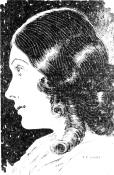
Katharine Cornell
drawing by E. R. Lundy
Kansas City, Missouri, Shubert Theatre
| Date | Evening Performance | Matinee Performance | ||
| Monday | March 5 | Romeo and Juliet | ||
| Tuesday | March 6 | Candida | ||
| Wednesday | March 7 | The Barretts of Wimpole Street | The Barretts of Wimpole Street | |
| Thursday | March 8 | Candida | ||
| Friday | March 9 | Romeo and Juliet | ||
| Saturday | March 10 | Candida | Romeo and Juliet |
.
While performing in Kansas City, Katharine Cornell's manager made arrangements for her to stay at the Morton T. Jones residence, one of the finest homes in the city, rather than staying at a hotel. Cornell recalled later that the heat in Kansas City was terrible.
"Basil Rathbone has the role of Robert Browning and acts it excellently. His determination to weld his spirit into Elizabeth Barrett's and to make her get well is instantly apparent from his first entrance upon the stage, and his equal determination that she shall break out from under her father's spell and lead a life of her own wins admiration for him and for the character that he portrays." —The Kansas City Times, March 8, 1934
Lincoln, Nebraska, Liberty Theatre
| Date | Evening Performance | Matinee Performance | ||
| Monday | March 12 | The Barretts of Wimpole Street | The Barretts of Wimpole Street |
.
While in Lincoln, Nebraska, Basil Rathbone spent his leisure moments at Bauer's candy factory.
In an interview with The Lincoln Star (March 12, 1934), Katharine Cornell revealed that Elizabeth Barrett was one of her favorite roles, and also one of her heaviest roles.
"The play is three hours long, and my role is three hours long. The first act of The Barretts is longer than my whole role of Juliet. And it takes the most complete concentration. I adored the play from the beginning, with its love story of two great poets, which gave it a double appeal, in addition to the fact that one made the other well. Elizabeth Barrett wasn't young, although no great stress is laid on this in the play, for she was thirty-nine, but she was courageous, insisting on self-expression through her writing, in spite of an injury when thrown from a horse and tuberculosis. It is a play deep with feeling, a story that the audience can make personal."
Variety (March 1934) reported that the matinee was four-fifths capacity, with a sell-out for the evening performance. The Cornell company got $4000 for the two performances in Lincoln.
In many towns it was a challenge to find a theater available for Cornell to use. The only reason that the Liberty Theatre was available for The Barretts of Wimpole Street was that the deal was made before the house was turned over to second run films.
Omaha, Nebraska, Technical High School Auditorium
| Date | Evening Performance | Matinee Performance | ||
| Tuesday | March 13 | The Barretts of Wimpole Street | ||
| Wednesday | March 14 | The Barretts of Wimpole Street |
.
Sioux Falls, South Dakota, Coliseum Theatre
| Date | Evening Performance | Matinee Performance | ||
| Thursday | March 15 | The Barretts of Wimpole Street |
.
Sioux City, Iowa, Auditorium Theatre
| Date | Evening Performance | Matinee Performance | ||
| Friday | March 16 | The Barretts of Wimpole Street |
.
Des Moines, Iowa, Shrine Auditorium
| Date | Evening Performance | Matinee Performance | ||
| Saturday | March 17 | The Barretts of Wimpole Street |
.
St. Louis, Missouri, American Theater
| Date | Evening Performance | Matinee Performance | ||
| Monday | March 19 | Romeo and Juliet | ||
| Tuesday | March 20 | Candida | ||
| Wednesday | March 21 | The Barretts of Wimpole Street | The Barretts of Wimpole Street | |
| Thursday | March 22 | The Barretts of Wimpole Street | ||
| Friday | March 23 | Romeo and Juliet | ||
| Saturday | March 24 | Candida | Romeo and Juliet |
.
Toledo, Ohio, Paramount Theater
| Date | Evening Performance | Matinee Performance | ||
| Monday | March 26 | The Barretts of Wimpole Street |
.
The company grossed $6,804.50 in Toledo. March 26 was the beginning of Holy Week, during which stage plays usually do poorly. But Cornell's company did unusually well. Toledo, Columbus, and Indianapolis together earned $24,000.
Toledo was memorable for Basil Rathbone because he connected with Corporal Tanner, whom he hadn't seen for sixteen years, when they served together in the Liverpool Scottish of the British forces. The former Corporal Tanner had become a policeman and was living in Toledo.
Columbus, Ohio, Hartman Theater
| Date | Evening Performance | Matinee Performance | ||
| Tuesday | March 27 | The Barretts of Wimpole Street | ||
| Wednesday | March 28 | Candida | Romeo and Juliet |
Indianapolis, Indiana, English Theatre
| Date | Evening Performance | Matinee Performance | ||
| Thursday | March 29 | The Barretts of Wimpole Street | ||
| Friday | March 30 | The Barretts of Wimpole Street | ||
| Saturday | March 31 | Candida | The Barretts of Wimpole Street |
.
The company played to standing room only crowds at all performances in Indianapolis. About 1200 people were refused tickets because the theater was not large enough to accommodate them.
Walter D. Hickman of The Indianapolis Star (March 30, 1934) wrote that the entire cast was splendid, including Flush, the pet dog of Elizabeth (in The Barretts of Wimpole Street). "The animal stops the show. He is perfect."
Romeo and Juliet was supposed to be the opening performance on March 29, but it turned out that the English Theatre was reserved for the several hours required for setting the stage. Although playgoers were thus deprived of seeing Rathbone play Romeo, they were treated to an extra performance of The Barretts of Wimpole Street.
Cincinnati, Ohio, Shubert Theatre
| Date | Evening Performance | Matinee Performance | ||
| Monday | April 2 | The Barretts of Wimpole Street | ||
| Tuesday | April 3 | Romeo and Juliet | ||
| Wednesday | April 4 | Candida | The Barretts of Wimpole Street | |
| Thursday | April 5 | The Barretts of Wimpole Street | ||
| Friday | April 6 | The Barretts of Wimpole Street | ||
| Saturday | April 7 | Candida | Romeo and Juliet |
The final performances of Romeo and Juliet for the season took place in Cincinnati.
Press agent Ray Henderson explained that it was impossible to stage Romeo and Juliet in cities where they were booked for one night only. The production with its 20 scenes required from eight to nine hours to set. Most of the cities in the southern part of the tour were one-night-stands.
Later in the tour, Katharine Cornell received a letter from a school girl in Ohio, enclosing a dollar and this explanation:
"After the matinee of Romeo and Juliet I wanted so much to see you act again that I did a very dishonest thing. After everyone else had left the gallery and the lights had been turned off, I came back and hid under a seat. When all the ushers had left, I climbed up and waited until the evening play began. When the audience came I got among them and went to a seat without being noticed by the ticket taker. While the play was going on I was very glad I stayed, but afterward my conscience, prompted a little by my mother and teacher, began working and I felt thoroughly ashamed. I felt worse about cheating one of the outstanding representatives of the theatre I love than if I had robbed a bank and the only way I could restore my self-respect was to send the money to you and apologize sincerely for what I did. P. S.: I omitted the government taxes. As for the dollar, I wish you would give it to the Actors' Fund."
| When the company departed from Cincinnati, it traveled to
Louisville via steamboat, specifically, the "Tom Greene" pictured here.
Louisville, Kentucky, Memorial Auditorium
|
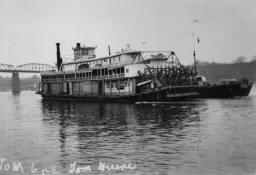 |
| Date | Evening Performance | Matinee Performance | ||
| Monday | April 9 | The Barretts of Wimpole Street |
Evansville, Indiana, Coliseum
| Date | Evening Performance | Matinee Performance | ||
| Tuesday | April 10 | The Barretts of Wimpole Street |
The company arrived in Evansville at noon on Tuesday. Cornell stayed at the McCurdy Hotel.
In an interview with the Evansville Courier, Cornell said that she enjoyed playing in the midwest because she is visiting so many places she has never known before. Evansville is one of those places she is visiting for the first time. "They have of necessity played in many very large auditoriums, and the fact that they have been unwilling to let one member of their audience miss any of the lines, they have learned much more about projecting the voice.
The road is just as discriminating as New York, if not more so, Miss Cornell said. That they know good things would be inevitable, she stated, since the New York audiences have a larger proportion of people from out of the city than of New Yorkers. Basil Rathbone plays Browning, a part taken in the New York production by Brian Aherne. When asked pointedly which she felt was the better for the part, Miss Cornell said, "Mr. Aherne had a great deal of dash and vigor, but Mr. Rathbone seems to be more truly the poet, not lugubriously the poet," she hastily added, "but a sensitive blend. He plays with such enthusiasm he truly lifts me off my feet."
Nashville, Tennessee, Ryman Auditorium
| Date | Evening Performance | Matinee Performance | ||
| Wednesday | April 11 | The Barretts of Wimpole Street | ||
| Thursday | April 12 | Candida |
.
Memphis, Tennessee, Ellis Auditorium
| Date | Evening Performance | Matinee Performance | ||
| Friday | April 13 | The Barretts of Wimpole Street | ||
| Saturday | April 14 | Candida | The Barretts of Wimpole Street |
The company arrived in Memphis Friday afternoon.
An audience of 2437 persons overflowed Ellis Auditorium into the orchestra pit for an evening of theater. Hundreds of those present had come many miles for the occasion.
New Orleans, Louisiana, Tulane Theatre
| Date | Evening Performance | Matinee Performance | ||
| Monday | April 16 | The Barretts of Wimpole Street | ||
| Tuesday | April 17 | Candida | The Barretts of Wimpole Street |
.
Montgomery, Alabama, Auditorium
| Date | Evening Performance | Matinee Performance | ||
| Wednesday | April 18 | The Barretts of Wimpole Street |
.
"Miss Cornell and Basil Rathbone, the famous English actor, as Robert Browning, were received with enthusiastic applause by one of the largest audiences ever to attend a legitimate stage performance in Montgomery. The play was given in the Sidney Lanier Auditorium." —The Montgomery Advertiser, April 19, 1934
"Miss Cornell and Mr. Rathbone the the famous play have drawn thousands of persons in nearly ever Southern city where The Barretts has been presented." —The Montgomery Advertiser, April 20, 1934
Birmingham, Alabama, Temple Theatre
| Date | Evening Performance | Matinee Performance | ||
| Thursday | April 19 | The Barretts of Wimpole Street |
Atlanta, Georgia, Erlanger Theater
| Date | Evening Performance | Matinee Performance | ||
| Friday | April 20 | The Barretts of Wimpole Street | ||
| Saturday | April 21 | Candida | The Barretts of Wimpole Street |
"It was like a return to the glorious days of old to see the Erlanger packed to the roof Friday and Saturday for the Katharine Cornell engagement. Proving, if proof was necessary, that the people are ravenous for real stage attractions, if said attractions are worth while." —The Atlanta Constitution, April 22, 1934
The Erlanger was packed to fullest capacity, with extra seats in the orchestra pit.
Savannah, Georgia, Auditorium
| Date | Evening Performance | Matinee Performance | ||
| Monday | April 23 | The Barretts of Wimpole Street |
.
Charleston, South Carolina, Academy of Music
| Date | Evening Performance | Matinee Performance | ||
| Tuesday | April 24 | The Barretts of Wimpole Street |
.
Spartanburg, South Carolina, Carolina Theatre
| Date | Evening Performance | Matinee Performance | ||
| Wednesday | April 25 | The Barretts of Wimpole Street |
Asheville, North Carolina, Plaza Theater
| Date | Evening Performance | Matinee Performance | ||
| Thursday | April 26 | The Barretts of Wimpole Street |
The performance in Asheville NC on April 26 got off to a dark start. The lights weren't working properly at the Plaza theatre. Lights would flash on momentarily, then off they'd go, accompanied by an enormous sigh of despair. After 15 minutes, the footlights glowed and the curtain slowly disclosed Elizabeth Barrett and Dr. Chambers in serious conversation, but only for a few minutes, for the lights went off again.
Katharine Cornell and David Glassford talked in the darkness for a minute, but then the curtain came down. After an anxious wait the footlights flowed once more. The play continued with no further lighting issues.
"Basil Rathbone was an impetuous Robert Browning, but it seems to me that he worked a bit too hard. Probably he realized the acoustical difficulties of the Plaza theatre, but it rather put my nerves on edge to hear him shouting tender expression of love to the frail Elizabeth. In the few moments when he lapsed into conversational tone his reading was beautiful."
After the performance officials of the Asheville Kennel club presented Flush with a pewter bowl from a North Carolina mountain crafts shop, inscribed "To Flush, from the Asheville Kennel club."
(reported by Malcolm Miller of The Knoxville Journal, April 29, 1934)
Charlotte, North Carolina, Carolina Theatre
| Date | Evening Performance | Matinee Performance | ||
| Friday | April 27 | The Barretts of Wimpole Street |
"Miss Cornell's interpretation was flawless. During the first part of the play she portrayed the fragile, delicate Elizabeth to whom the audience poured out all its sympathy. And then, as her love for Robert Browning deepened until nothing else in her life mattered, she went through a metamorphosis that was conveyed with such subtlety, as so deftly, that her audience live it and felt it with her. Truly a feat attributable only to a great artist! Excellent, too, was Basil Rathbone as the brilliant, courageous, overwhelming Robert Browning. The conversations between these two, Elizabeth and Robert, proved the most interesting dialogue of the play." —T. D. Kemp, Jr., The Charlotte Observer, April 28, 1934
Raleigh, North Carolina, State Theatre
| Date | Evening Performance | Matinee Performance | ||
| Saturday | April 28 | The Barretts of Wimpole Street | The Barretts of Wimpole Street |
The company took the Southern Railway train from Charlotte and arrived in Raleigh at 9:00 a.m. They stayed at the Sir Walter Hotel.
Richmond, Virginia, National Theatre
| Date | Evening Performance | Matinee Performance | ||
| Monday | April 30 | The Barretts of Wimpole Street | ||
| Tuesday | May 1 | Candida | The Barretts of Wimpole Street |
Durham, North Carolina, CarolinaTheatre
| Date | Evening Performance | Matinee Performance | ||
| Wednesday | May 2 | The Barretts of Wimpole Street |
Cornell and company arrived in Durham at 9:40 in the morning. They stayed at the Washington Duke Hotel.
|
A No-Tact Tragedy Featuring Mr. Basil Rathbone, ably Assisted by Local Talent by Elmer Oettinger The scene is backstage at the Carolina Theatre, Durham. The time is immediately following the performance of The Barretts. The cast is headed by Mr. Basil Rathbone, star of stage and screen and leading man for Miss Katharine Cornell, in conversation with two Carolina students. RATHBONE: Do you go to that marvelous University near here? [The students nod proudly.] You do? [Vigorous reaffirmation] Isn't it beautiful? [Acquiescence] You know, my wife and I were out there this afternoon. A truly remarkable place. I think that about a hundred years from now—when the buildings have had time to grow old and acquire ivy and that sort of thing—the place will have an historic loveliness. Don't you? [The students look at one another with evident bewilderment.] By the way, what's the name of the place? Drake, isn't it? [The students depart quietly. But somehow the more they think about that last remark the more they wish some Duke student had been present.] (source: The Daily Tar-Heel, May 4, 1934) |
Greensboro, North Carolina, National Theatre
| Date | Evening Performance | Matinee Performance | ||
| Thursday | May 3 | The Barretts of Wimpole Street |
Roanoke, Virginia, Academy of Music
| Date | Evening Performance | Matinee Performance | ||
| Friday | May 4 | The Barretts of Wimpole Street |
The company arrived in the morning on the Memphis Special. They typically departed a location after the evening show in order to arrive at the next location the following morning.
For the first time in the history of the Academy of Music, extra chairs were placed on a platform built over the orchestra pit to accommodate the hundreds that came to see The Barretts of Wimpole Street, and many who came from a distance were turned away at the door; for it was something rare in the recent history of the theatre—a sold-out house.
Princeton, New Jersey, McCarter Theatre
| Date | Evening Performance | Matinee Performance | ||
| Saturday | May 5 | The Barretts of Wimpole Street |
.
Wilmington, Delaware, Playhouse
| Date | Evening Performance | Matinee Performance | ||
| Monday | May 7 |
The Barretts of Wimpole Street |
Harrisburg, Pennsylvania, Zembo Mosque
| Date | Evening Performance | Matinee Performance | ||
| Tuesday | May 8 | The Barretts of Wimpole Street |
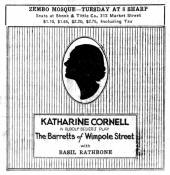 |
"Basil Rathbone creates a tempestuous, dominating, masterful Robert Browning ... a poet in love." —Harrisburg Telegraph, May 9, 1934 |
Williamsport, Pennsylvania, Majestic Theatre
| Date | Evening Performance | Matinee Performance | ||
| Wednesday | May 9 | The Barretts of Wimpole Street |
236 stood to watch the play.
Ithaca, New York, Strand Theatre
| Date | Evening Performance | Matinee Performance | ||
| Thursday | May 10 | The Barretts of Wimpole Street |
Cornell wanted to perform in Syracuse but the stage was too small. The February 12, 1934 edition of Variety reported: "Smallness of the stage of the Civic Theatre will prevent Katharine Cornell from including Syracuse in her itinerary, it is announced. Star wanted to do The Barretts of Wimpole St. here."
Perhaps the citizens of Syracuse were able to drive to Rochester, Ithaca, or Utica to see the play.
Rochester, New York, Lyceum Theatre
| Date | Evening Performance | Matinee Performance | ||
| Friday | May 11 | The Barretts of Wimpole Street | ||
| Saturday | May 12 | Candida | The Barretts of Wimpole Street |
Buffalo, New York, Erlanger Theatre
| Date | Evening Performance | Matinee Performance | ||
| Monday | May 14 | Candida | ||
| Tuesday | May 15 | Candida | ||
| Wednesday | May 16 | The Barretts of Wimpole Street | Candida |
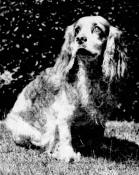 |
Flush, the canine actor who played Elizabeth Barrett's dog, received an ovation in Buffalo. He is also the subject of a book, Flush of Wimpole Street and Broadway by Flora Merrill. |
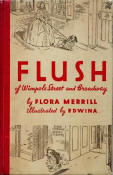 |
Toronto, Ontario, Canada, Royal Alexandra Theatre
| Date | Evening Performance | Matinee Performance | ||
| Thursday | May 17 | The Barretts of Wimpole Street | ||
| Friday | May 18 | Candida | ||
| Saturday | May 19 | The Barretts of Wimpole Street | Candida |
Utica, New York, Majestic Theatre
| Date | Evening Performance | Matinee Performance | ||
| Monday | May 21 | The Barretts of Wimpole Street |
Albany, New York, Capitol Theatre
| Date | Evening Performance | Matinee Performance | ||
| Tuesday | May 22 | The Barretts of Wimpole Street | ||
| Wednesday | May 23 | Candida | The Barretts of Wimpole Street |
"Basil Rathbone makes Browning a forceful, hearty, bluff English fellow, even in his tender moments with Elizabeth." —William H. Haskell, The Knickerbocker, May 23, 1934
New Haven, Connecticut, Shubert Theatre
| Date | Evening Performance | Matinee Performance | ||
| Thursday | May 24 | The Barretts of Wimpole Street | ||
| Friday | May 25 | The Barretts of Wimpole Street | ||
| Saturday | May 26 | Candida | The Barretts of Wimpole Street |
Hartford, Connecticut, Parsons Theatre
| Date | Evening Performance | Matinee Performance | ||
| Monday | May 28 | The Barretts of Wimpole Street | ||
| Tuesday | May 29 | The Barretts of Wimpole Street | ||
| Wednesday | May 30 | Candida | The Barretts of Wimpole Street |
"It is hard to believe that Browning, despite all his assertiveness and confidence, was ever quite the high pressure love-salesman, quite as much the pepful athletic director as he appears in The Barretts. Or even granting that, that he had no other sides. It is difficult to imagine Elizabeth standing up in the face of such breezy gales of passion and preparedness as those with which Mr. Besier has endowed Browning. It is true that Mr. Rathbone played his part right up to the hilt and full steam ahead, but Mr. Besier gave him more than abundant chance to do so." —T. H. P., Hartford Courant, May 29, 1934
Providence, Rhode Island, Carlton Theatre
| Date | Evening Performance | Matinee Performance | ||
| Thursday | May 31 | The Barretts of Wimpole Street | ||
| Friday | June 1 | The Barretts of Wimpole Street | ||
| Saturday | June 2 | Candida | The Barretts of Wimpole Street |
Springfield, Massachusetts, Court Square Theatre
| Date | Evening Performance | Matinee Performance | ||
| Monday | June 4 | The Barretts of Wimpole Street | ||
| Tuesday | June 5 | Candida | The Barretts of Wimpole Street |
"Mr. Rathbone is to be complimented for bringing forth a personage who does not stalk as the great of the earth have stalked on the stage and in Victorian costume time out of mind." —A. L. S. Wood, Springfield Evening Union, June 5, 1934
June 5 was the final performance of Candida for the tour. For the rest of the tour the company performed only The Barretts of Wimpole Street.
Worcester, Massachusetts, Plymouth Theatre
| Date | Evening Performance | Matinee Performance | ||
| Wednesday | June 6 | The Barretts of Wimpole Street |
Boston, Massachusetts, Boston Opera House
| Date | Evening Performance | Matinee Performance | ||
| Thursday | June 7 | The Barretts of Wimpole Street | ||
| Friday | June 8 | The Barretts of Wimpole Street | ||
| Saturday | June 9 | The Barretts of Wimpole Street | The Barretts of Wimpole Street |
Newark, New Jersey, Shubert Theatre
| Date | Evening Performance | Matinee Performance | ||
| Monday | June 11 | The Barretts of Wimpole Street | ||
| Tuesday | June 12 | The Barretts of Wimpole Street | ||
| Wednesday | June 13 | The Barretts of Wimpole Street | The Barretts of Wimpole Street | |
| Thursday | June 14 | The Barretts of Wimpole Street | ||
| Friday | June 15 | The Barretts of Wimpole Street | ||
| Saturday | June 16 | The Barretts of Wimpole Street | The Barretts of Wimpole Street |
Brooklyn, New York, Academy of Music
| Date | Evening Performance | Matinee Performance | ||
| Monday | June 18 | The Barretts of Wimpole Street | ||
| Tuesday | June 19 | The Barretts of Wimpole Street | The Barretts of Wimpole Street | |
| Wednesday | June 20 | The Barretts of Wimpole Street | The Barretts of Wimpole Street |
END OF TOUR
On June 28, after the tour had ended, Katharine Cornell and her husband Guthrie McClintic sailed for Europe, for a vacation in Majorca, the Riviera, Geneva, and the Bavarian Alps. They left Flush with Basil Rathbone while they vacationed in Europe. Rathbone had a very different sort of "vacation": He had his tonsils removed, and then retreated to a little cottage on a golf course at Great Neck, Long Island. In early August MGM agents came looking for Rathbone to offer him the part of Murdstone in David Copperfield; they tracked him down on a New England farm. The farm was likely the home of Rathbone's friend, fellow-actor and singer Mike Bartlett. Rathbone's beloved dog Moritz died in May and was buried on the Bartlett property in Oxford, Massachusetts.
* Rathbone's autobiography states that he visited Cornell in Garmisch in the autumn of 1932. He is off by one year. It was 1933.







